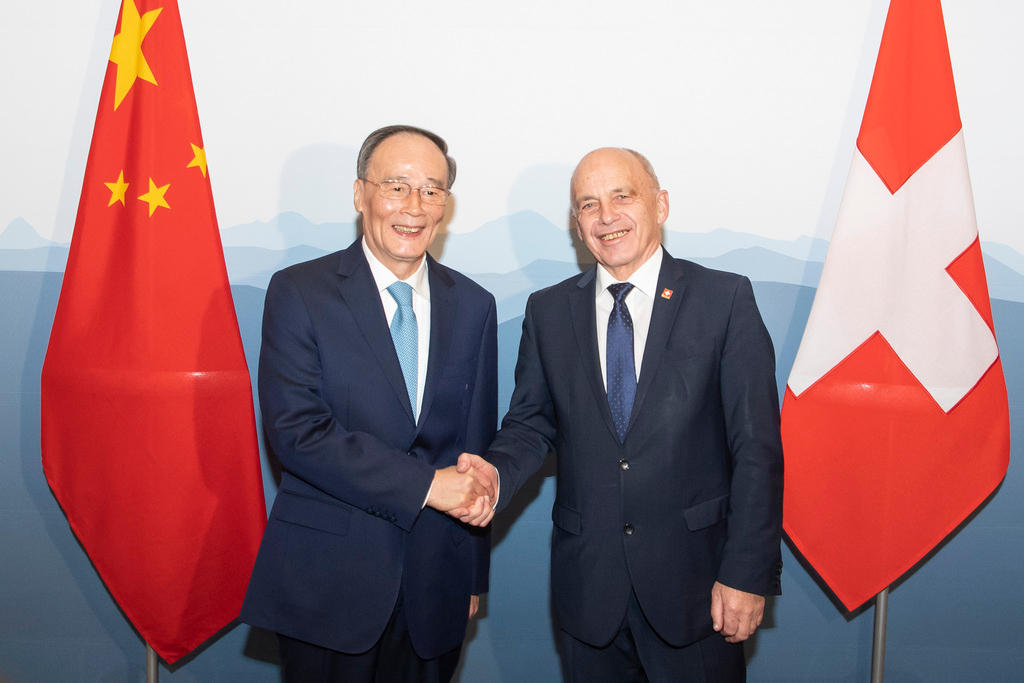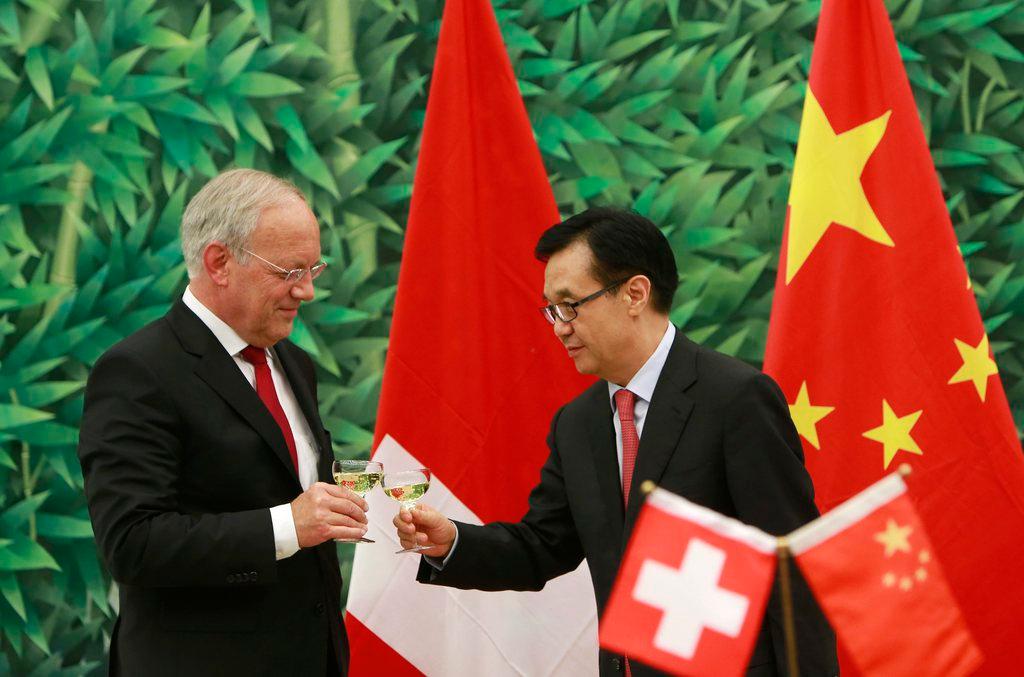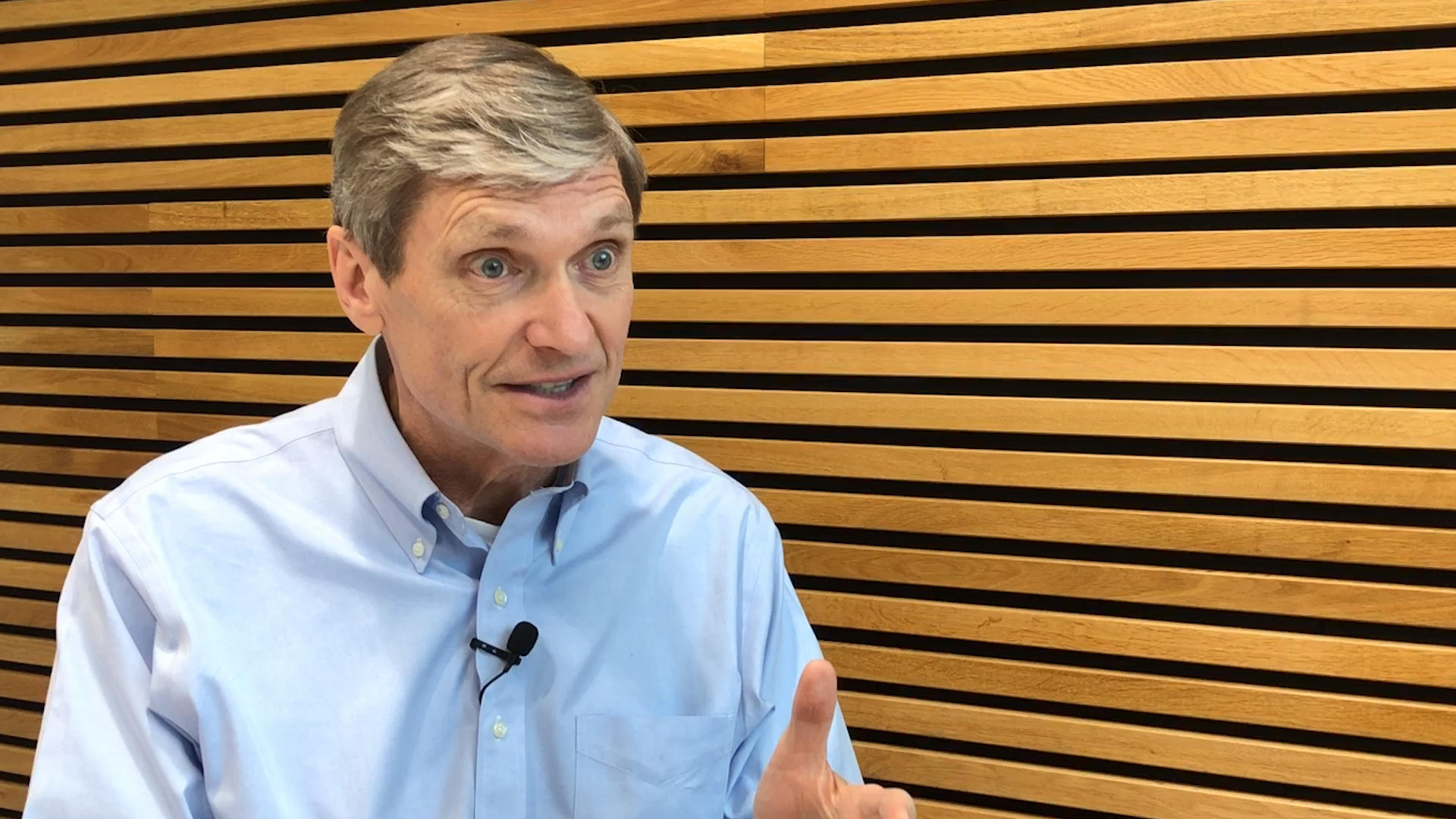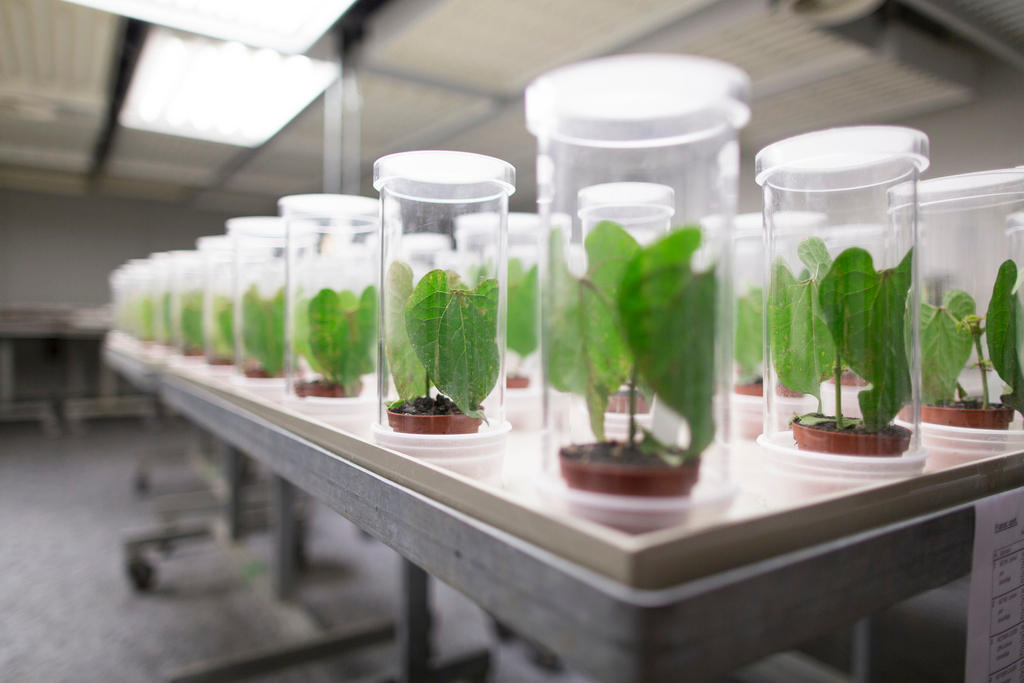As Chinese economy slows, Swiss seek greater access

The presence of China’s vice president at the annual meeting of the World Economic Forum comes at a time of slowing economic growth at home and growing scrutiny of Chinese investments abroad, including in Switzerland.
Gloom. Apprehension. Concern. China’s Vice President Wang Qishan, currently attending the annual World Economic Forum in DavosExternal link, might want to skip the local papers.
The Neue Zürcher Zeitung, a leading newspaper, decriedExternal link “dark clouds over Chinese skies” in an article about the outlook of the Chinese economy. “China’s economy is cooling, and the West is feeling the impact,” the business newspaper Finanz und Wirtschaft saidExternal link, pointing to slowing sales of major international brands. Even 20 Minuten, a free tabloid distributed at major transport hubs, reportedExternal link on unfavorable prospects for the world’s second-largest economy.
One reason for the gloom was the quarterly release of official economic growth figures in Beijing on Monday. The world’s second-largest economy grew a mere 6.6% over the year, the slowest pace since 1990, China’s National Bureau of Statistics said. Observers noted a slowdown over the second half of 2018 and questioned, as usual, the accuracy of official figures.
Effects in Switzerland
The Swiss media care because the consequences of an economic slowdown in China for Switzerland could be significant. China is Switzerland’s most important trading partner in AsiaExternal link. Swiss companies export more to distant China than to neighbouring Austria.
An economic slowdown also risks dampening the travelling aspirations of the still growing Chinese middle class. That in turn, could hurt Swiss tourism hubs that have wholeheartedly embraced Chinese tourists, like Lucerne, and companies offering scenic mountain journeys by train, like the Jungfrau Railways.
But the numbers don’t paint an entirely bleak picture for the Chinese economy. Consumer spending and industrial output were still better than expected. Also, while growth has slowed in China, the newly added demand remains substantial.
Chinese acquisitions
The Swiss press has also been increasingly apprehensive of Chinese company acquisitions in the country. In three parliamentary initiatives, various parties are demanding controls on foreign investments in local companies. In doing so, they are responding to a series of high-profile acquisitions, including Syngenta, the agrochemical conglomerate, by ChemChina, and deals involving the now troubled HNA Group.
+ Read more about the Syngenta deal here
“I fear an outflow of know-how, the loss of jobs, but also the effects on matters of public security,” Beat Rieder, a politician from the centre-right Christian Democratic Party, told Swiss public television, SRF, in a recent interviewExternal link.
But not everyone agrees. The Swiss business federation, economiesuisse, dismissed such concerns in a statement on January 18External link. It called for stricter oversight as the “wrong diagnosis for an nonexistent problem”. Switzerland already had the mechanisms in place to protect critical infrastructure and technologies from foreign control, it argued.
It would also be counterproductive, it continued, to introduce new restrictions while at the same time demanding the lifting of such restrictions in other markets. Swiss exporters have been demanding greater market access overseas, including China.
Officials with Switzerland’s State Secretariat for Economic AffairsExternal link (SECO) have been pushing to expand the scope of the free-trade agreement with China. These efforts have not yet shown any sizable results, the NZZ noted last weekExternal link.
Free-trade, WEF
Demands for greater market access were also a topic of talks that Swiss president Ueli Maurer held with Chinese Vice President Wang in Zurich on Monday. On the free-trade agreement, Maurer told SRFExternal link that the two governments had agreed to work towards improving market access. Maurer said that he was scheduled to visit China in April to advance such talks.
Maurer rejected calls for stronger oversight of foreign investments. “I do not think that Switzerland wants to set hurdles here,” he said. “Working with important investors helps economic growth and ultimately promotes prosperity.”
A recent survey of Chinese foreign investmentExternal link by the American Enterprise Institute suggests that Chinese overseas investments fell sharply last year and that the decline accelerated toward the end of the year. It cited increased oversight as one reason, among others, for the downturn.
Wang is scheduled to address the World Economic Forum on Wednesday afternoon. The trade warExternal link with the United States will most likely feature prominently in his speech.
Maurer said that the trade war was not a topic in his conversation with Wang. “We aren’t quarrelling with China, quite the opposite,” he said.

In compliance with the JTI standards
More: SWI swissinfo.ch certified by the Journalism Trust Initiative














You can find an overview of ongoing debates with our journalists here . Please join us!
If you want to start a conversation about a topic raised in this article or want to report factual errors, email us at english@swissinfo.ch.